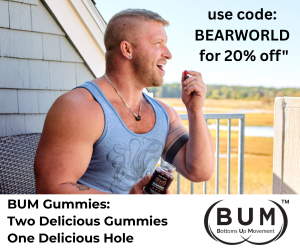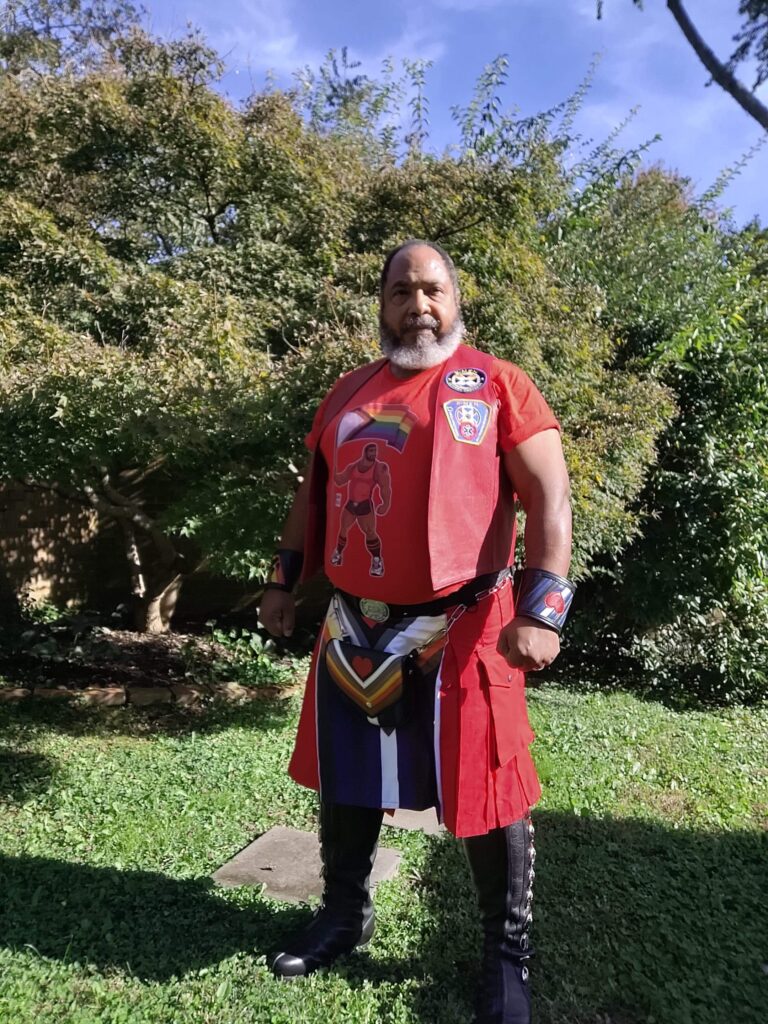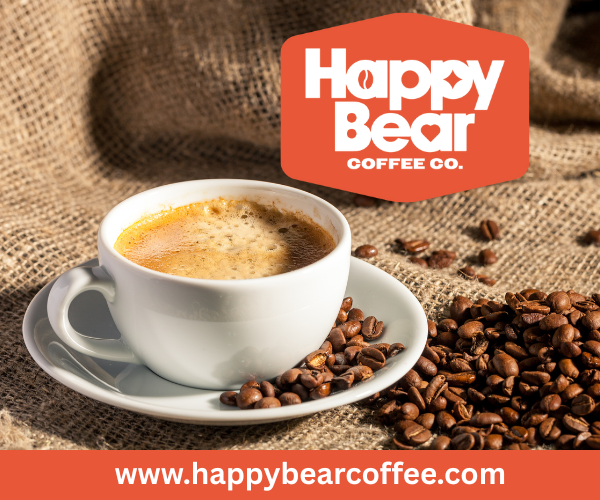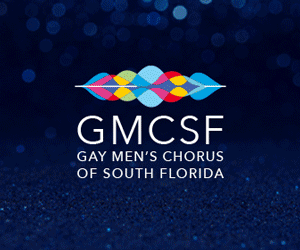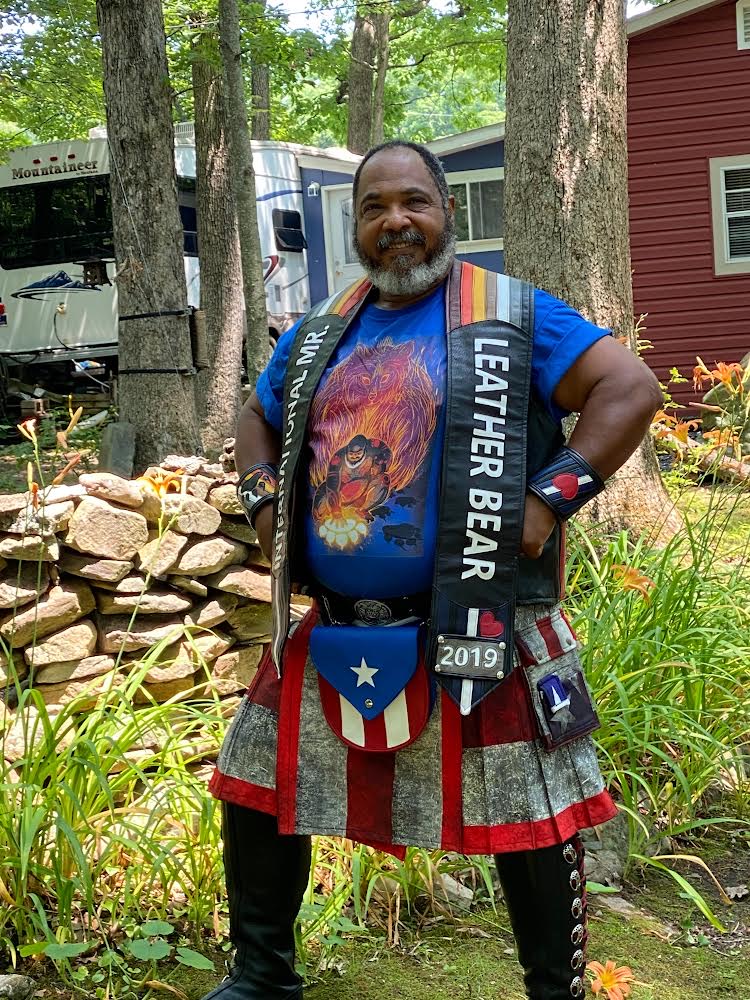
First Black International Mr. Leather Bear Ali Lopez discusses representation
Representation is one of the most important things to discuss here at Bear World Magazine. And being a fellow Bear of color, Ali Lopez understands why this is the case.
Throughout the years, Ali Lopez has proven why he is one of the most well-respected members of the Bear community. His presence alone as inspired other Black men and men of color who identify as Bears to do great things. As the first Black and Afro-Latino winner of some of the biggest and most popular Bear contests in the world, Ali Lopez continues to inspire the next generation of Black Bears and LGBTQ people of color.
I recently sat down for an chat with Ali, as we discussed his experiences in the Bear community, and some of the obstacles he has faced getting there.
Kyle Jackson: Before I even start, I just want to say that, when I was a teenager, researching what a Bear was and coming into the realization that not only was I attracted to Bears, but I also was a Bear myself – You were the first Black Bear I came across. You were the first Black Bear who actually identified as a Bear that I had ever seen in my life. You realize this, right?
Ali Lopez: And I’m happy that I was. Because that was the intent. That’s what I was trying to do.
KJ: What made you decide that you wanted to represent for Black men and men of color in the Bear community?
AL: Part of it was intended this way because my first foray to a bear event – which I was invited by my best friends and mentors – was an event in DC by the Chesapeake Bay Bears, which unfortunately, they are no longer around. But at the time, the president of the club pulled me aside and said, “You know, I don’t think you would be a good fit for us. There’s not such a thing as a Black Bear.” And I didn’t want to cause a scene because I had just came out not long ago and was finally starting to get comfortable with who I was. But they invited me me and they spoke very openly about Bears being welcome and all this other stuff, and then next then it’s just like… What the hell?
But then on my way home, I thought to myself, Why did you leave? Why did you let him tell you that when you know full well that there’s black Bears out there? What was said didn’t reflect to me what the Bear community was. So I decided, You know what, I’m going to join the Club. I’m going to be the most visible person that that club has. Every time they had a cookout, I was out. I was at the cookout, and I was flipping burgers. “Hey, how you doing?! My name is Ali!”
Not that I was trying to get laid. He was about making myself visible. Because the first thing that people see about me is I’m black. There’s no There’s no arguing that. But, also, I’m Puerto Rican. I am a Blatino. I have always identified myself as both. And I wanted to make sure that people know we belong here. We are not to be told, “Oh, you might not fit.” And that’s what I’ve been doing all along.
I was one of the first Bears of colour to ever enter contests. And I didn’t enter to win. I never did enter to win. I entered to represent, because if they don’t see us they don’t believe that we’re there. They don’t believe that we belong. And yes, I do have an attitude and an agenda when it comes to that, and I’ll be the first one to admit it. Nobody’s gonna put Baby in the corner. It’s very much my intention. Because it feels like, “You don’t belong here.” And it’s like… Excuse me, bitch? Not today, Satan. Not today.
KJ: Now, you said you were one of the first to enter the Bear title contests. You are currently Mr. International Leather Bear, correct? And what was the other title that you hold?
AL: Yes, that is correct. And in 2006, I won Mr. International Daddy Bear at International Bear Rendezvous (IBR). And, to be honest, I was shocked. There’s a video out there – and I remember seeing it, but unfortunately, I didn’t keep it – where you can see my face that I was like, “I won? Seriously, I was like… “I won?” (laughs)
But, like I said, I didn’t enter to win. I just went to represent.
KJ: Are you the first Black Bear to win both of those titles?
AL: Actually, yes. For International Mr. Daddy Bear, I am the first Afro-Latino to win. And I’m the first Black/Hispanic Bear to win Mr. International Leather Bear.
KJ: Can you talk a little bit about the work you do as a titleholder?
AL: Well, as I said, I enter these contests not to just win, but to represent. I want to represent underserved communities. For example, when I entered International Mr. Daddy Bear, there were hurricanes that hit cities. For example, New Orleans. Before I even entered the contest, I helped raise over $3,000 in 2005 in the aftermath of Hurricane Katrina.
KJ: Wow, I didn’t know that. You know New Orleans is my hometown, right?
AL: Oh, really? I didn’t know that!
KJ: Yes, it is! Sorry, go on!
AL: And then when Puerto Rico got hit, that specifically affected the people that I love – my family and my country where I came from, and where I grew up. And it really shook me to the core. And I was like, What can I do?
I took my mom from Puerto Rico to stay with me for a year, which was very hard, because me and my mom don’t get along very well. I’m the child that she never wanted. But regardless, I still love her and I still care. And between my older brother and me, back and forward, we took care of my mom. When I went to take my mom back to Puerto Rico, I went to see the Bears of Puerto Rico because they’re also family. And I started raising money for them. That’s another community that is very much underserved. And what I mean by that is – the poor, the Bears in Puerto Rico, the LGBTQ people in Puerto Rico, are going through a lot. Because of religious persecution, they don’t want them there. They don’t see them as a valid part of the community, and Bears specifically are catching hell.
So one of the things I wanted to do was represent them. And not only to represent them, but also be able to bring some relief to them in some way. To date, I think I have raised anywhere from $15,000, with the help of people in the community, my club – the Centaurs – and other Puerto Rican Bears and LGBTQ people, between us in what we could. And unfortunately, this happened right before the pandemic, and the pandemic has hindered many of the opportunities for me to be able to do a lot of the fundraising. But I still every once in a while would have one fundraiser out there. I do what I can do, but I’m only one Bear on a budget!
KJ: A Budget Bear!
AL: Exactly!
KJ: How is it for going back home and seeing what people are going through?
AL: You know, it’s like, going back to Puerto Rico was tough. Even now. There’s so much devastation. And COVID has made things worse, because people can’t get together to do the things that they would normally do. And one of the things that I felt, the last time that I went to Puerto Rico was the feeling of, you know… You can feel the heaviness in the air. Puerto Rico has this atmosphere – not just because it’s my hometown, not because I just grew up there.
And all I could feel was the dread of people feeling like, “Oh, I have to get up and rebuild my house.” Or, “ God, you know, I have to go and bury Uncle Beto because he passed away.” Over 4,000 people died. And I don’t give a damn what administration it is, but the last administration was very much responsible for so much pain in so much suffering, including the Rosselló administration, which was the Puerto Rican governor at the time.
I thank Ricky Martin for so much that he did. I wish I could talk to him, because I want to thank him so much for everything that he did. But also, the Bears of Puerto Rico, where there trying to get this governor out. And they, you know, they basically were just ignored because they’re part of the LGBT community. And the only one that got the big spotlight was Ricky Martin, even though he’s a part of the LGBT community as well.
You know, so this is not just about me. There’s a whole community over there that is strong and is surviving, and needs help. And, you know, I hope that this allows for people to to help them out because, yeah, I’m just one guy.
KJ: You’re just one guy, but you’ve done a lot already for Puerto Rico, and it’s commendable. During our Hispanic Heritage Month piece, you talked about being Afro-Latino. Can you talk about some of your experiences and challenges being both Black and Latino?
AL: This one I always use as an example – and you can look this one up. But not only as a bad example, but it’s also an example of a learning curve. The thing about being in the public is that you really see the lack of knowledge and the lack of understanding about certain things from all sides. But go to YouTube and look for Bear World, which is a video that I did for a friend of mine in Puerto Rico.
This is an interview where I’m talking about my experiences, and they show a clip. And I’ll send it to you later so you don’t have to look for it. I always talk about my experiences in the military. In the military, I got flack from both tribes – for being Black and for being Hispanic. I was stationed in Kansas, and I was really good at my job. So they couldn’t get rid of me for that reason. They couldn’t put me in a corner. They couldn’t say he’s incompetent. I was actually the best explosive expert they had at the time.
But, after I won the International Mr. Daddy Bear title in 2006, I got a lot of hate. One day the “n” word came around, and I said, sarcastically, “You know, you’re using the wrong derogative.” I’ve actually never been called the “n” word. As far as I knew, I am a “s—k”, remember? And someone took offense that I leaned more towards the derogatory term for Hispanics. And they’re like, “Oh, there he is. He’s trying to deny his blackness.” Well, guess what? It’s right on my skin. I can’t. It doesn’t come off. It doesn’t bleach out. And I don’t want to do that.
So the person wanted to break me because I said that I was something that “I wasn’t.” But I am. I am Black, but I am also Puerto Rican — I am both. I have European in me also, and I don’t actually excuse any of what I am. What I am is an amalgam of everything. That is me. My family always was proud of being Black, of being Taino and of being European. Every part of who I am, we celebrate. I know how to dance Bomba, and I know how to dance Plena and sing it. I basically do every dance from my culture. Because it’s part of me, and that’s the joy that my grandfather and my grandmother, who were slaves, gave me.
As a matter of fact, my grandfather was a great-great grandson of the owner of the town who was European. I can’t erase that. But he taught me everything about dancing and music. Puerto Ricans are everything that you see. It is a joy that I cannot basically say is not part of my life. Sorry, if anyone has a problem because I wear my Puerto Rican flag. Guess what? I put it on basically everything. I have a kilt of the Puerto Rican flag, and my vest – I don’t know if you’ve seen it – but my vest has a Puerto Rican flag in it. So, people know. I am fucking Puerto Rican. Plain and simple.
KJ: What we’re basically talking about is intersectionality. You’re not just a Bear, but you’re a Black Bear. And you’re not just a Black Bear, but you’re also a Hispanic Bear.
AL: We have to realize that we’re much more alike than different. We have our differences in culture, but we have to embrace the differences to be able to move forward. Because otherwise we’re just gonna be at each other’s throats and this gap doesn’t accomplish anything. And I do understand when people feel better than you do. I went through that.
You know, growing up, I had a high IQ, but I was a Black kid. And I was in the KIPP classes. None of the kids that were in my class were, you know… like me. I was always an outcast, but I didn’t care. And so, you know, when it came time to pick the valedictorian, they gave it to the two people that were, you know, the whitest ones. And they didn’t give it to me, even though I had a higher IQ and a higher GPA than they did. Well, you know what? Didn’t matter. Because it didn’t change anything. Well, it happens, unfortunately, and that’s one of the reasons why I fight so much.
KJ: You spoke earlier about some of the other things you do in your community, and some of the other programs you do. Can you talk about some of those?
AL: One of the programs that I do, which I don’t get any money whatsoever from anybody, is playing Santa. The organisation’s in the Maryland, Virginia and DC area. I dress up as Santa and I go to schools of underserved kids. And I give them a different view of Santa because that’s something else that people took away from us.
The original San Nicolas was actually a Black man. He was a Moor. Yes, in the fourth century, you can look it up. But then when the Europeans took all that, they gave him blue eyes, white skin, and blonde/white hair. And he was the one giving the toys. Guess what? It wasn’t him. It was actually Saint Nicholas, a Moor, who did it first. That’s where the legend came from.
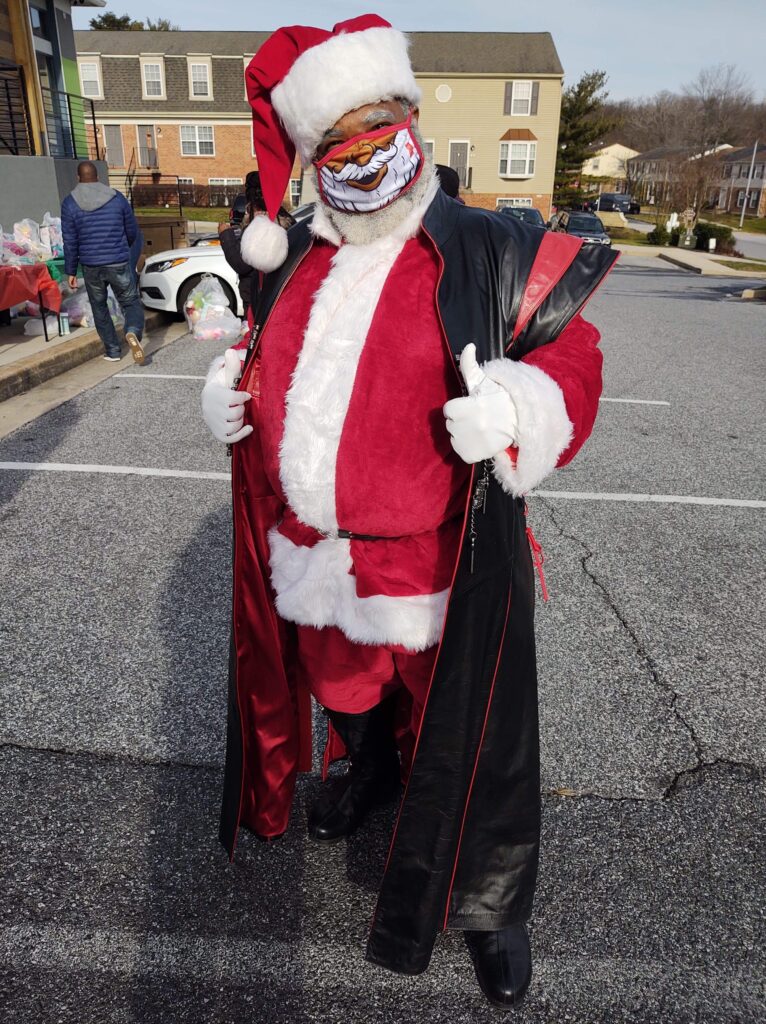
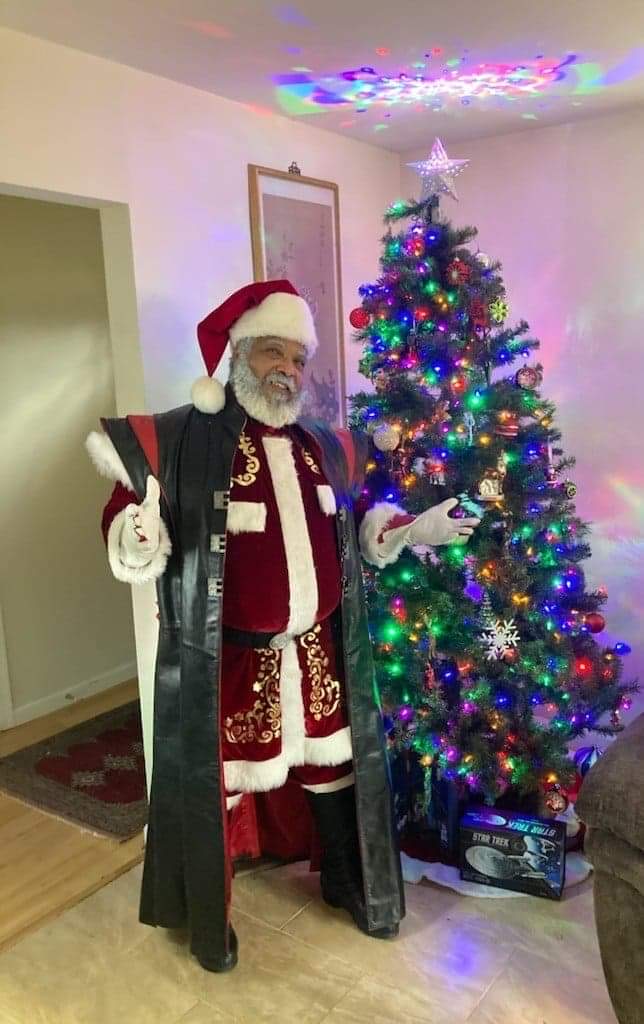
But all that got taken away in one of my biggest and most wonderful experiences. I think it was in 2018. I went to a school in Baltimore called Graceland, and a group of kids that were out on a field trip came in. And one of the girls saw me when she walked in through the door, and she screamed at the top of her lungs, “See? I told you Santa was Black!” And I just cracked up.
Somebody took a picture of that moment, because it was just amazing to me to hear that. But also, to be able to give kids an image of Santa, unfiltered, that looks like them and speaks their language. The other thing is that, you know, I had Hispanic kids come up to me that barely spoke any English, and I surprised the shit out of them when I started speaking Spanish. Because they had never seen a black man speak Spanish.
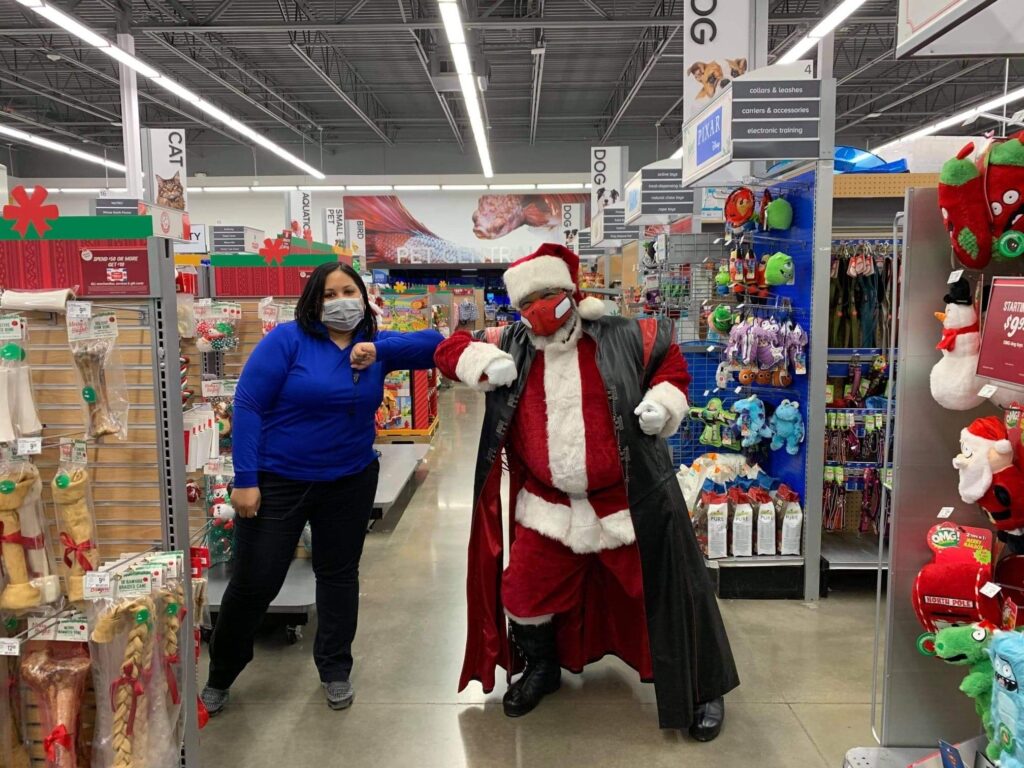
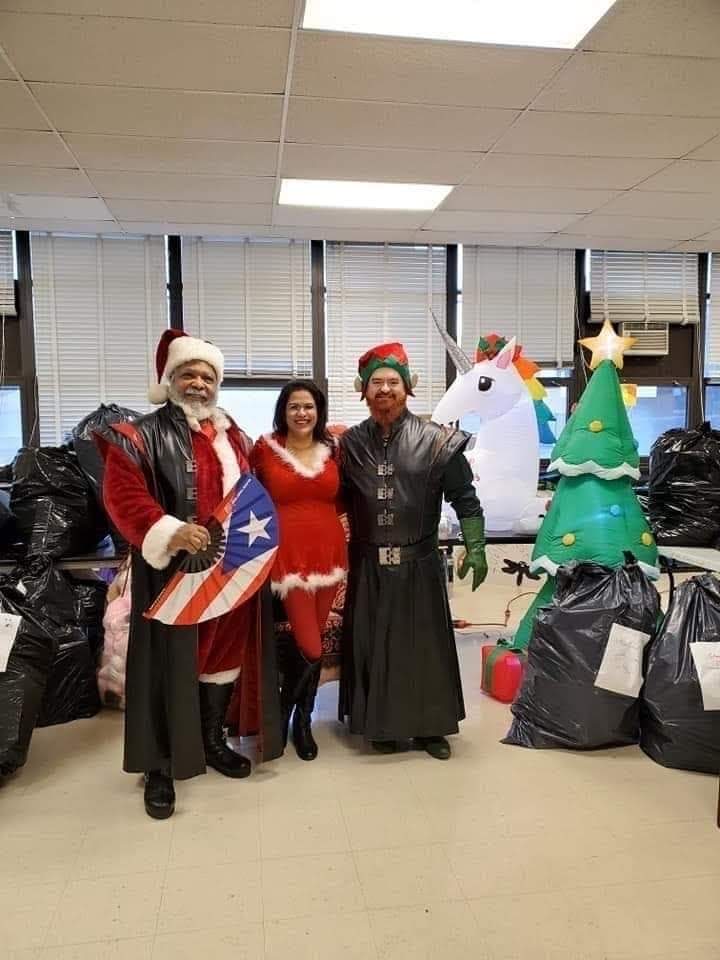
That is probably one of the most fulfilling parts of what I do. It’s not something that I do every day. But I look forward to every Christmas when I go, with the help of PetSmart. And with some organisations in the area, I do a toy drive and I collect stuffed animals. I do another event as naughty Santa, and it’s geared more toward an adult crowd. I go to gay bars, and I collect toys through different organisations, and those toys go to a community of underserved kids – kids that never would get a toy because their parents can’t afford it.
Throughout the pandemic, it was so hard to watch people that normally would have a high paying job not being able to work and not being able to afford giving their children a toy. It was so tough to watch that. But we got through it, and we got them a toy. We watched those kids light up with joy.
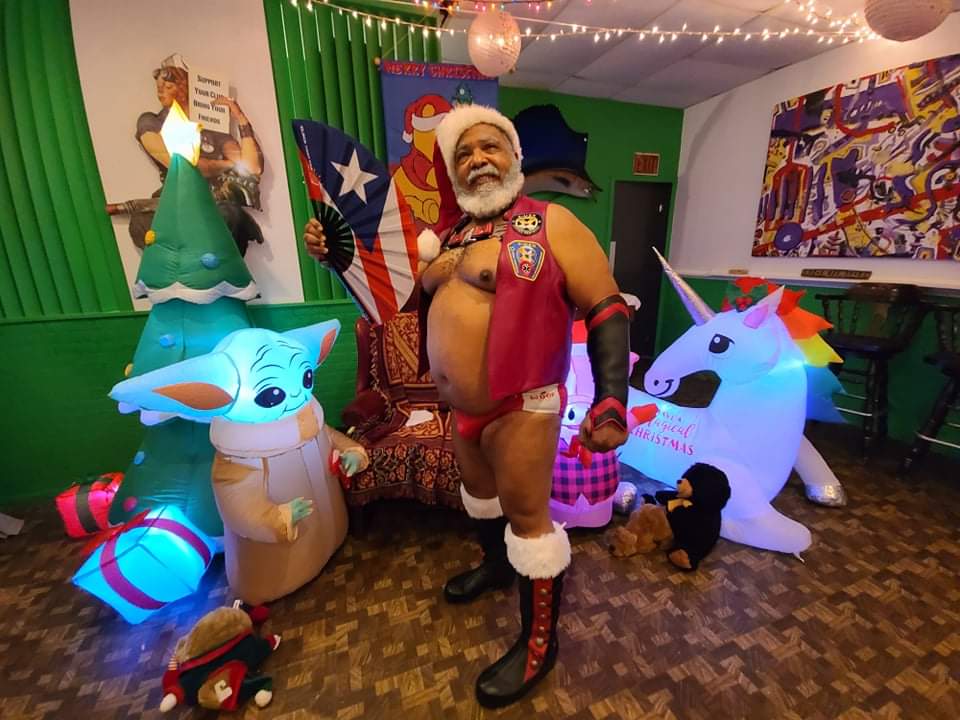
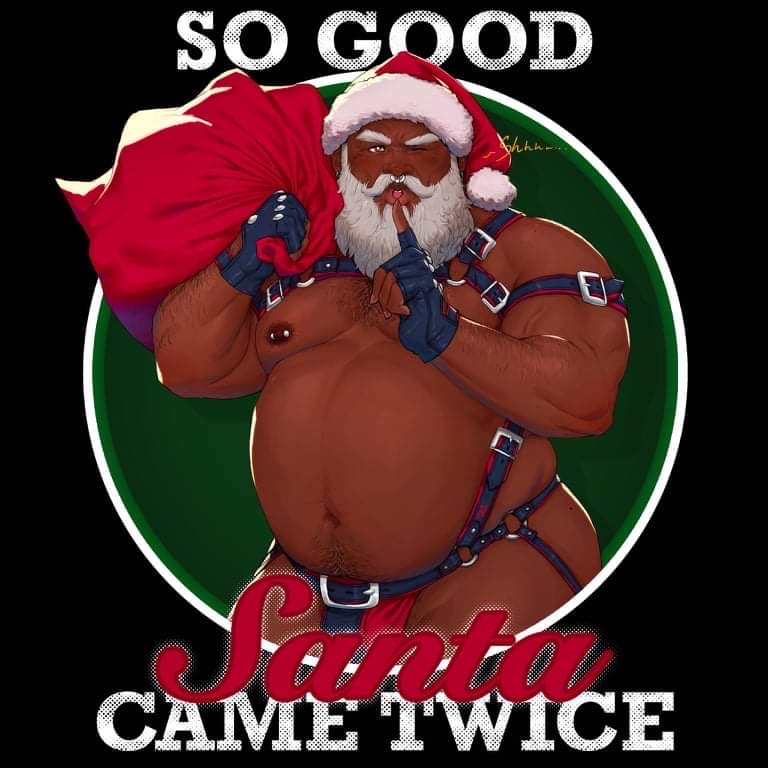
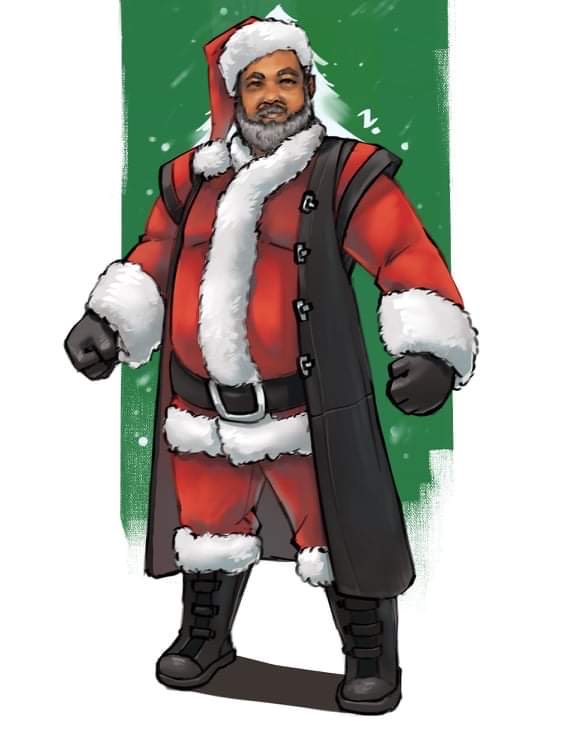
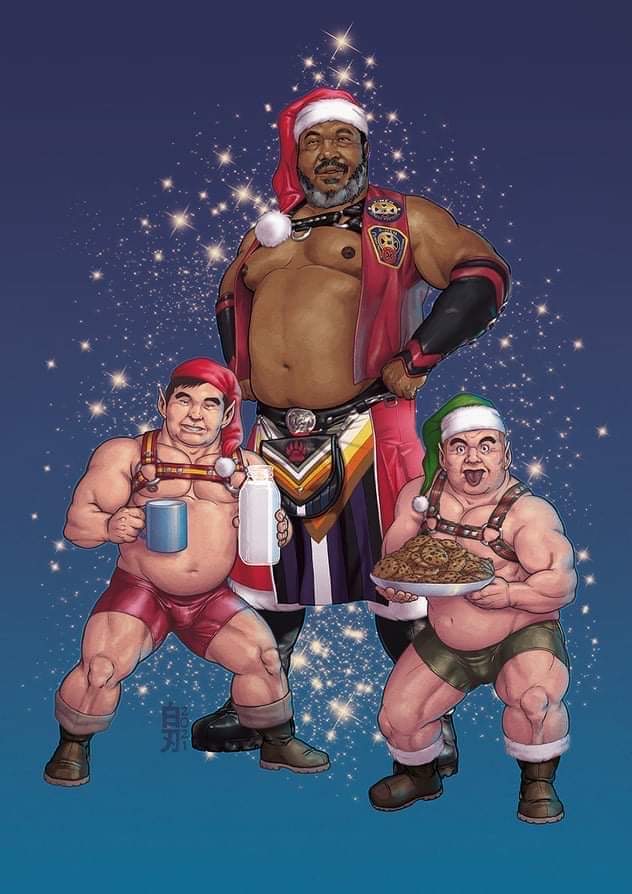
KJ: What’s the name of that organization?
AL: One of them is called Helping Orphans Prosper Everywhere (H.O.P.E.), which I’ve been working with since 2004. It is the main organization that I work with based in Randallstown, Maryland. I just started doing two organisations here – actually it’s three – but it’s called The Community here in Prince George’s County. It is a group of organizations collecting toys and giving them to the community. And, you know, that’s something that I just started doing this year.
So, I’m a pretty busy guy, to say the least. The main idea is to give people a different perspective of what we are. I talk science with kids, I talk mathematics. I ask questions like, “What do you like?” and “Why don’t you like that subject?” Make it easy for yourself. I can do calculus in my head, but not everybody can. Like I said, it’s all about fun. I have a big love for animals, land science is a big part of my life. So might as well share it.
KJ: Who is next on your list of people and organizations to support?
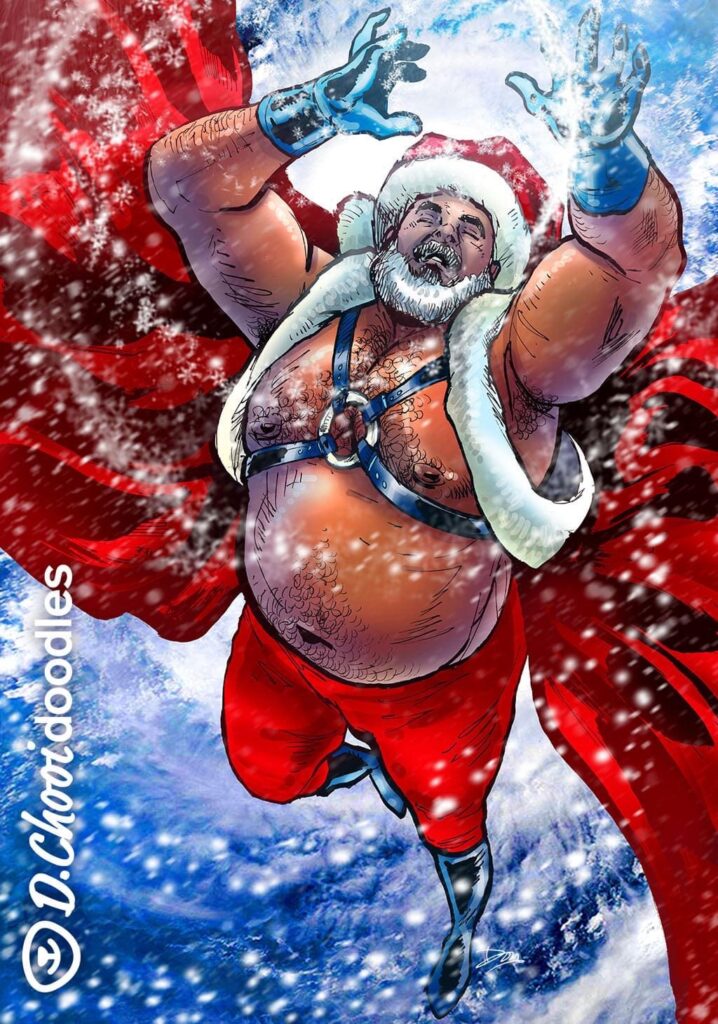
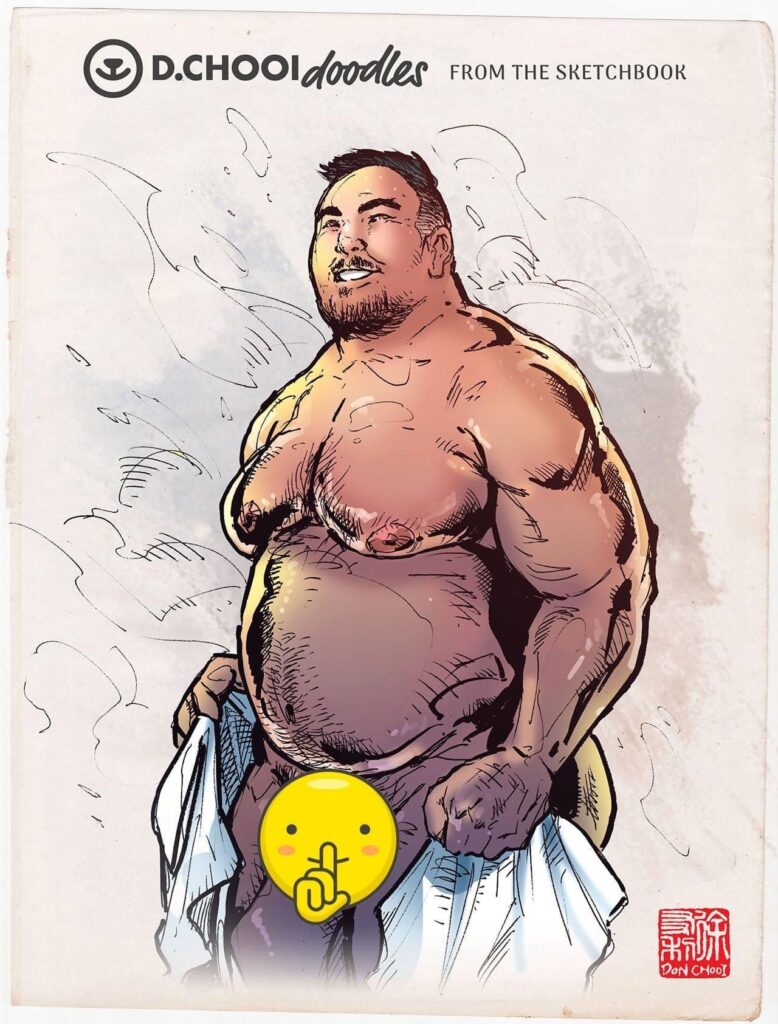
Well, aside from the things I’ve mentioned, I have also been commissioning artists of color to illustrate my flyers and other projects. And I’m doing it from my own pocket. One of the artists is a friend of mine, a New Zealand-based artist named Don Chooi. He’s a great artist, and I can’t wait for everyone to see more of his work!


